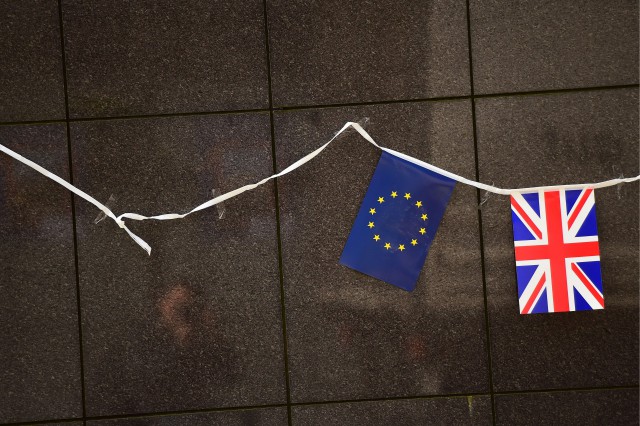The advocates of Brexit like to paint an optimistic picture of a post-EU Britain as an active, globally engaged power. ‘Who has the parochial mindset here,’ asks Dan Hannan, ‘those who want a global role of the United Kingdom, or those who think that our role must be mediated by Federica Mogherini, the EU’s Foreign Minister?’ Eurosceptics rarely outline the details of the UK that they have in mind. At most, they say that once the UK leaves, the British government could negotiate free-trade agreements with countries overseas – most notably those in the Commonwealth.
But there is much more to international engagement than trade. For a campaign that takes pride in its global outlook, it is striking how much the Leave crowd brushes aside the effects that Brexit would have on the UK’s more immediate neighbourhood – specifically on Europe.
True, Brexit would not affect the UK’s military might, its commitments within NATO, nor its ability to form coalitions with the United States and Western European countries to deal with the security issues of the day. But responding to the security threats facing Europe requires more than just military deterrence. Take Vladimir Putin as an example. His programme of expanding Russia’s sphere of influence in Central and Eastern Europe does not rely on conventional warfare. There is the frozen conflict in Ukraine. Europe also faces a sophisticated propaganda and information war, and attempts to co-opt European political elites through bribery. The Kremlin has also used the exports of Russian energy, most notably of natural gas, as a political tool in countries that are dependent on Russian energy.
The UK has been a force for economic liberalisation on the continent, starting with the Single European Act of 1987. More recently, David Cameron’s government has been among those pushing for the completion of the single market in energy. The absence of the UK’s voice from the EU would give more power to protectionist special interests in member states – including Russian energy monopolies that are eager to carve out and segment Europe’s energy markets.
Today, all eyes are on Putin’s military campaign and the supposed ceasefire in Syria. The main goal of the intervention is to help Assad’s regime. But Russian strikes have also exacerbated the humanitarian crisis in the country. Since September 2015, Russian airstrikes have displaced over one quarter of a million of Syrian civilians, according to the Center for Civilians in Conflict.
Deliberately or not, the Russian campaign is bound to lead to a further influx of refugees into Europe. The tensions that the refugee crisis has created are propped up by the Russian propaganda machine. The fabricated stories of child abductions or mass rape by Middle Eastern asylum seekers fuel the anti-immigration backlash and contribute to the erosion of trust in Europe’s institutions – and in liberal democracy more generally. Between spring and autumn 2015, for example, the proportion of Czechs for whom the EU conjures a negative image grew from 20 to 31 percent. A similar backlash can be seen across the region, and even in Germany where this proportion rose from 17 to 27 percent.
The weaker and more divided the EU is, the more headway Mr Putin can make in recolonising what once was the Soviet space. The image of the UK leaving a sinking ship, which the Leave campaign is so eager to sell, plays right into his hands.
As a country that has not been invaded in over one thousand years, the UK can enjoy a realistic prospect of severing its ties with the continent without suffering an immediate economic or geopolitical calamity. Eastern Europeans, in contrast, do not have such a luxury. They face instead a clear-cut choice between being a part of the European Union, with all its flaws, and being fair game for Vladimir Putin and local kleptocrats.
By leaving the EU, the UK would make it harder for the West to speak with a unified voice in the face of the Russian threat. Worse yet, Brexit would empower the rising centrifugal forces on the continent, propped up by the EU’s economic woes, the refugee crisis, and also by Russian money and propaganda.
If the advocates of Brexit take pride in their global outlook, they should better realise that a global engagement has to begin in one’s immediate neighbourhood. If the UK’s departure from the bloc risks undoing the accomplishments of the past 25 years – which have extended the benefits of democratic capitalism to some hundred million Eastern Europeans – maybe it is the Eurosceptics who have a parochial mindset after all.
Dalibor Rohac is a research fellow at the American Enterprise Institute in Washington, and author of Towards an Imperfect Union: A Conservative Case for the EU (Rowman & Littlefield, May 2016). Twitter: @daliborrohac.






Comments